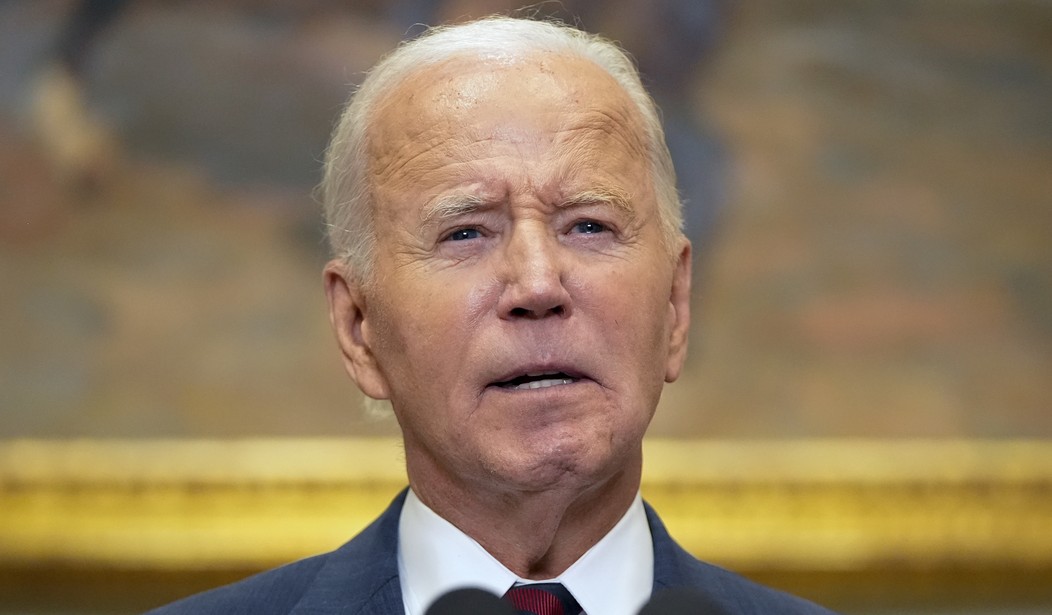The 1972 presidential election -- which pitted incumbent President Richard Nixon against Sen. George McGovern of South Dakota -- was an absolute wipeout.
Nixon won 49 of the 50 states, losing only Massachusetts.
In Delaware that year, Nixon took 59.6% of the popular vote and McGovern took only 39.2%. But the incumbent Republican senator running for reelection there that year suffered a surprising defeat.
"President Nixon, a conservative, won handily in Delaware," reported the Wilmington News Journal the day after that election. "Yet, Democrat Joseph R. Biden, a moderate-to-liberal Democrat, defeated the more conservative Sen. J. Caleb Boggs despite Boggs' longevity in the Senate."
Age was a key issue in this race between Boggs and Biden -- with Biden running ads that suggested Boggs was too old and local newspapers celebrating the then-29-year-old Biden's youth.
"Biden finally shifted into an oblique attack on Boggs' age, 63, in a series of ads implying that Boggs would have been good for the job in the 1950s but Biden was more in tune with the '70s," the Wilmington Morning News reported the day after Biden defeated Boggs.
The Wilmington Evening Journal carried this headline that day: "State Elects The Youngest U.S. Senator."
"Democrat Joseph R. Biden Jr. squeaked past two-term Republican incumbent J. Caleb Boggs yesterday to become the nation's youngest U.S. senator and score one of the nation's biggest political upsets," the paper reported.
Recommended
"Biden, who will not be eligible for the Senate until he turns 30 on Nov. 20, upset Boggs by 2,986 votes," the paper said.
Biden was sworn in as a senator on Jan. 3, 1973.
What was the federal government like when Biden started his career in federal office 51 years ago?
In fiscal 1974 -- the first full fiscal year that Biden served in the Senate -- the federal government took in $263.224 billion in taxes and spent $269.359 billion, running a deficit of $6.135 billion, according to data published by the White House Office of Management and Budget.
Where did the federal government spend that $269.359 billion in fiscal 1974?
The largest spending category in that fiscal year when Biden was beginning his career in Washington was the Department of Defense -- Military Programs. It consumed $77.864 billion in fiscal 1974
The second largest was the Social Security Administration, which spent $58.123 billion. The third largest was the Department of Treasury, which manages the federal debt and spent $35.369 billion. The fourth largest was the Department of Health and Human Services, which spent $28.062 billion.
As Biden approaches the end of his single term in the White House, we are now in fiscal year 2025 -- more than half a century past the first full fiscal year of Biden's time in the Senate. In that more-than-half a century, Biden has had some responsibility for federal spending except during the time when President Donald Trump had responsibility for signing federal spending bills. From January 1973 to January 2009, Biden served in the Senate. From January 2009 to January 2017, he served as vice president; and from January 2021 until now, he has served as president.
What was federal spending like in fiscal 2024, the last full year Biden has overseen?
Biden's OMB estimates that the federal government collected approximately $5.0815 trillion in taxes in fiscal 2024 and spent approximately $6.9409 trillion, while running a deficit of approximately $1.8593 trillion.
The single largest spending category in fiscal 2024, according to the OMB estimates, was the Department of Health and Human Services, which spent approximately $1.6693 trillion. The second was the Social Security Administration, which spent approximately $1.5171 trillion. The third was the Department of the Treasury, which spent approximately $1.3456 trillion.
The OMB has also published a table that shows federal revenues, spending and deficits for every year going back to 1940 converted into constant fiscal year 2017 dollars. This table shows that in fiscal 1974, when Biden was serving his first full fiscal year in the Senate, the federal government spent approximately $1.2413 trillion in constant 2017 dollars. In fiscal 2024, it spent approximately $5.5876 trillion in constant 2017 dollars.
Thus, in this era when Biden has served all but four years in federal office, real federal spending has increased more than fourfold.
At the same time, according to the Congressional Research Service, the federal debt was $450.068 billion at the end of January 1973, the month Biden was sworn into the Senate. This Monday, according to the Treasury Department, it was $35.884 trillion.
When Biden released his last federal budget proposal in March, he declared his commitment to fiscal responsibility.
"Well, the budget I'm releasing today sends a clear message to the American people that we -- what we value," he said. "First, fiscal responsibility."
"The first value," he repeated, "is fiscal responsibility."
History will not remember Biden that way.

























Join the conversation as a VIP Member